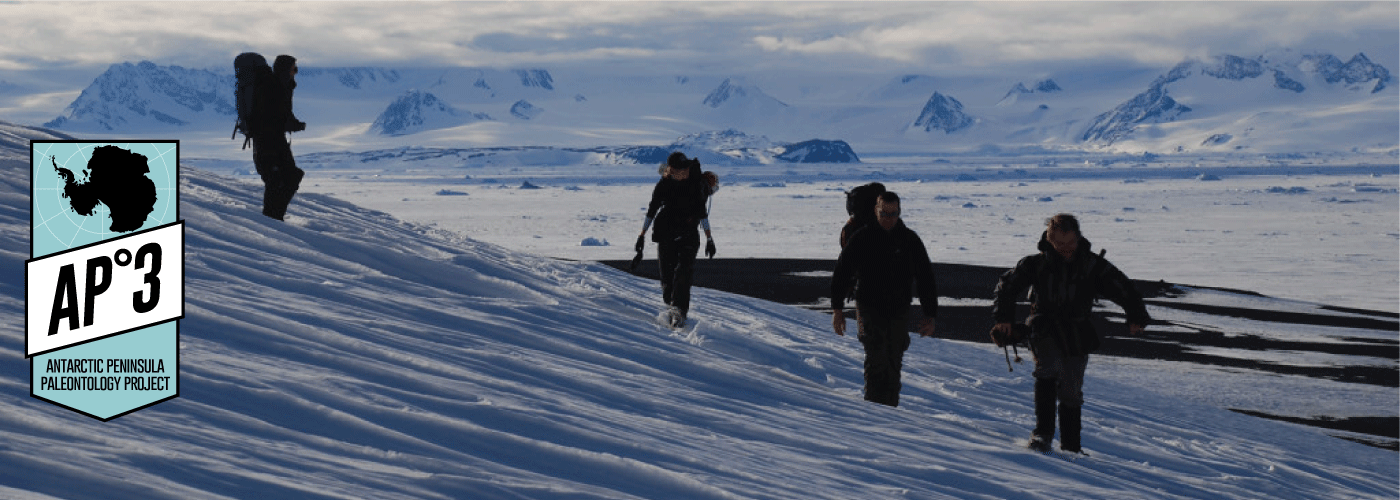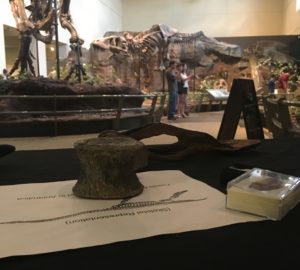As a researcher in a natural history museum, I have a couple main ways of sharing my work with others. The first is, naturally, by writing and publishing papers in peer-reviewed journals. The second is through formal or informal events at the museum. And, as rewarding as it is to see your hard work in print, interactions like one I had yesterday at Carnegie Museum of Natural History are truly special.
Matt Lamanna and I were participating in an event at CMNH called Super Science Saturdays. We sat at a table in one corner of the dinosaur hall, behind a sign reading “Meet A Paleontologist” and about a dozen fossils for people to pick up and ask questions about. The main demographic of visitors was elementary schoolers, often wearing dinosaur-themed t-shirts, always keen to pick up and wave around our fossil examples. Matt and I were glad we had chosen robust specimens. There were also plenty of older kids, a few teenagers on dates, and grown-ups.
As the afternoon wound down and the steady stream of visitors slowed to a more manageable level, a teenager and her mom approached me at the table. The mom spoke first, because the girl was quietly struggling to choke back tears.
“She wants to be a paleontologist, and she’s just very emotional to meet one in person.” She turned and spoke to her daughter– “Go ahead, talk to her! Ask her all your questions!”
I tried to put on my least intimidating expression, and after a minute the girl and I were chatting about my career path and her plans to go to college next year and study biology and geology. (“I knew it! I told you I should do biology and geology, mom.”) At the end of our conversation, she was once more a little emotional. Her mom handed me the museum guide and map, and whispered, “can we get your autograph, please?” I’m not used to being asked that, but I obliged, and wrote the daughter a note with how to keep in touch.
This might sound like an exaggerated, ego-padding story from my telling of it. And it did make me feel somewhat proud of my own accomplishments. Beyond that, though, I think it highlights a responsibility that modern scientists have: to connect with students, share advice and empathy, and give effort and personal time to make our work, and our lives, accessible. And it demonstrates that this effort (which sometimes feels exhausting) can be not only rewarding, but also really impactful for the next generation of scientists.
[P.S. My main piece of advice for prospective students is to get involved in scientific research– as an intern or a volunteer, during summers and weekends. The lab you work in doesn’t have to be exactly the area you’re most interested in– it’s to get experience in any kind of science research setting, to build your CV, and to connect with potential mentors. I literally walked in to biology, geology, and anthropology departments as a high schooler and between college semesters, and asked if anyone needed an intern– the answer was often yes, and occasionally there was even grant money to pay that intern. (My advice for people who are already scientists is to remember how intimidating it was to be on the other side of that interaction. We’ve all been there, and have all benefitted from that kindness and mentoring.)]

